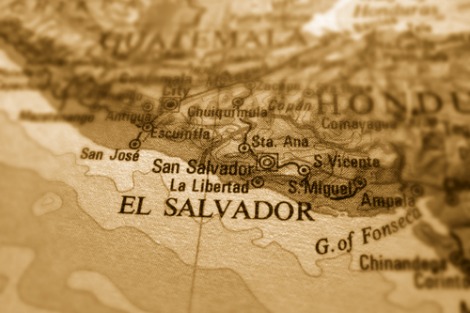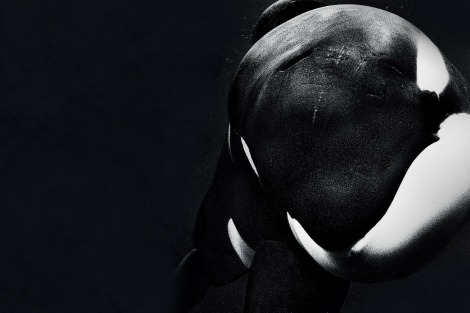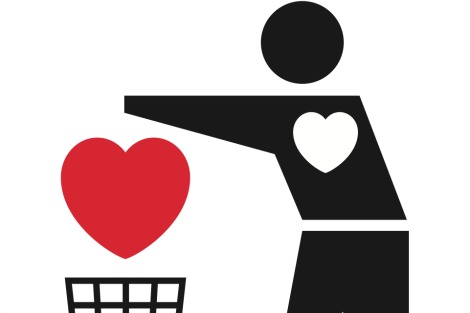Keywords: Pacific
There are more than 200 results, only the first 200 are displayed here.
-

AUSTRALIA
- Frank Brennan
- 11 April 2014
8 Comments
'We should abandon talk of taking Australia off the table. We should also abandon talk of taking the sugar off the table. The collateral damage of that is too great. The best we can do ethically and practically is to put the sugar out of reach while leaving it on the table for those who make it here with a visa or in direct flight from persecution.' Frank Brennan contributes to a Palm Sunday panel at St Michael's Uniting Church, Melbourne.
READ MORE
-

INTERNATIONAL
- Walter Hamilton
- 09 April 2014
3 Comments
The two powers in Asia on whom our economy and security depend, Japan and China, have reached an impasse. That should not constrain Australia from reaching out to both on the basis of mutual interest and shared values. China has a keen appreciation of the former and an abiding suspicion of appeals to the latter. Distinguishing one from the other and acting accordingly is the first great test of Abbott's statecraft.
READ MORE 
-

AUSTRALIA
- Marg Hutton
- 16 January 2014
5 Comments
In 2001 Prime Minister Howard tried to distance Australia from the SIEVX tragedy, in which 353 asylum seekers drowned, by repeatedly referring to the sinking as having occurred in 'Indonesian waters'. If there was any doubt then that SIEVX was an Australian tragedy, in 2013 there is none. There are now young kids growing up in Australia, who were born here and speak with Australian accents, who had brothers and sisters who drowned on SIEVX.
READ MORE 
-

RELIGION
- Neil Ormerod
- 17 December 2013
27 Comments
Pope Francis' vision for the church of the poor is now joined to a stinging critique of our globalised economy which promotes a 'new tyranny' of unfettered capitalism and an attack on the 'idolatry of money'. While such language has not been uncommon, buried in the riches of Catholic social teaching, this pope has made it up front and centre stage of his message.
READ MORE
-

INTERNATIONAL
- Andrew Hamilton
- 28 November 2013
16 Comments
El Salvador is a small, largely agricultural society, with one of the highest population densities in the world. A largely Australian owned mining company proposes to mine for gold there, at great social and environmental cost to the local population. In Australia the wellbeing of people in areas affected by mining is central in the granting of permits. Are we willing to accept a lowering of standards for the overseas operations of Australian companies?
READ MORE 
-

ARTS AND CULTURE
- Tim Kroenert
- 21 November 2013
1 Comment
I was grateful that I had my back to my colleagues. My tears were occasionally due to sadness, but just as often they were a result of outrage. Blackfish finds much ground for moral outrage in its consideration of the suffering endured by trained orcas. It is an impassioned riposte to a commercial model in which death and suffering, human and cetacean alike, are merely the byproducts of profit.
READ MORE 
-

RELIGION
- Frank Brennan
- 08 November 2013
1 Comment
'Many Catholics wonder how we can maintain our Christian faith at this time in the wake of the sexual abuse crisis and the many judgmental utterances about sexuality and reproduction. The Church that has spoken longest and loudest about sex in all its modalities seems to be one of the social institutions most needing to get its own house in order.' Frank Brennan's address to the Yarra Institute for Religion and Social Policy, 8 November 2013.
READ MORE
-

ENVIRONMENT
- Fatima Measham
- 04 November 2013
10 Comments
The bases of our arguments over climate change have been trodden so much that a moat has formed around us, leaving us stuck in our little island fortresses. We know thoroughly by now the content of our disagreement. But what are the things that do not require persuasion? Is it possible that we have values and interests that intersect? Adaptation may be that intersection.
READ MORE 
-

AUSTRALIA
- Frank Brennan
- 02 November 2013
7 Comments
'There have been innumerable post-mortems and words of advice as to how the party with new structures, election rules, and policies can pick itself up, dust off, and win the next election. Sadly some of those post-mortems have come with more coatings of spite and loathing. It is no part of my role in the public square as a Catholic priest to offer such advice.' Frank Brennan's address to the Bathurst Panthers Club, 2 November 2013.
READ MORE
-

ARTS AND CULTURE
- Bronwyn Lay
- 23 October 2013
5 Comments
Human land practices and increasing temperatures alter the earth, and are influenced by politics, law, philosophy and economics. In Lisbon, Western philosophy sought to sever God from nature; now we pretend that the fusion of humans and nature doesn't exist. The term natural disaster shouldn't be trusted. It is superstitious to think humans and nature aren't locked in a reciprocal relationship with political and ethical responsibility.
READ MORE 
-

AUSTRALIA
- Marg Hutton
- 21 October 2013
13 Comments
In 2001 Prime Minister Howard tried to distance Australia from the SIEVX tragedy, in which 353 asylum seekers drowned, by repeatedly referring to the sinking as having occurred in 'Indonesian waters'. If there was any doubt then that SIEVX was an Australian tragedy, in 2013 there is none. There are now young kids growing up in Australia, who were born here and speak with Australian accents, who had brothers and sisters who drowned on SIEVX.
READ MORE 
-

INTERNATIONAL
- Kerry Murphy
- 15 October 2013
14 Comments
Italians are not necessarily more ethical than Australians, but the attitude of their government and local officials to asylum seekers who arrive by boat is in stark contrast with our own. The Pope called it vergogna — shameful, or a disgrace — that so many asylum seekers trying to get to Italy by boat have drowned. Australia's vergogna lies in its official attitudes of punishment and demonisation.
READ MORE 